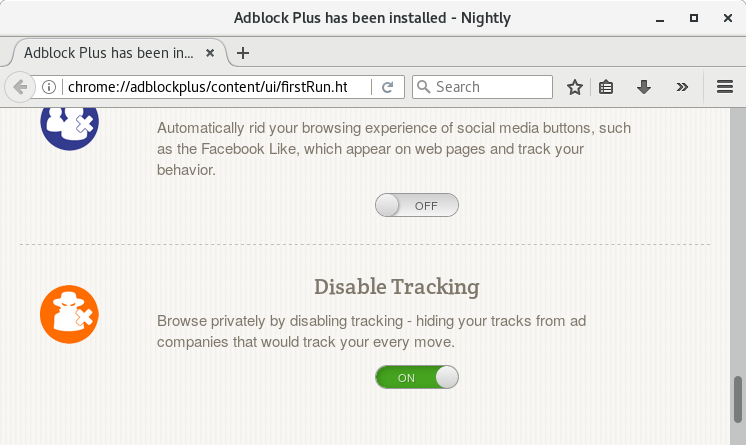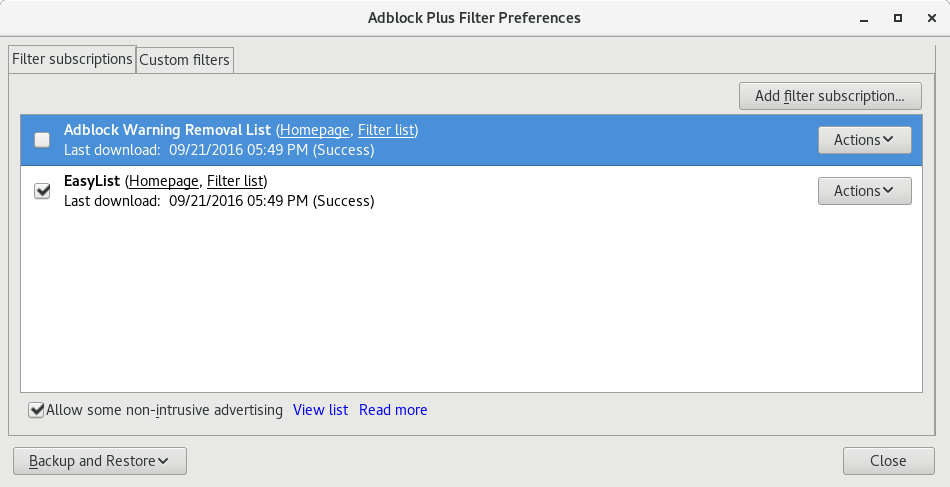Consumer privacy tool, not so much
Update 7 Nov. 2016: As of today, privacy claims and the "disable tracking" switch have been removed from the Adblock Plus first install page. (Get real tracking protection.)
Consumer Reports has just published "66 Ways to Protect Your Privacy Right Now".
Many of those suggestions look good. But that should probably be more like 65 ways.
One piece of software linked to from the CR story is Adblock Plus, which would be a better fit for CR's "Selling it" feature on sneaky offers, weasel wording, and other examples of gray-hat marketing.
What's so bad about Adblock Plus?
When you first install Adblock Plus, the privacy option looks good. It says "Adblock Plus can do more than block ads." Scroll down to the bottom of the page, and you see
Browse privately by disabling tracking - hiding your tracks from ad companies that would track your every move.
Looks good, so flip the "Disable Tracking" switch.
Protected from tracking, right? Wrong.
It looks like you made the responsible choice, and now you're protected.
But start web-surfing with your browser's developer
tools open, and you'll see third-party trackers
from, for example, googleads.g.doubleclick.net.
What's up with that? How could it be that even
when you deliberately turn on "Disable Tracking"
you still get trackers?
That's the tricky part. The company's "Acceptable Ads" whitelisting program actually overrides the other choices made by the user, including that nifty little "Disable Tracking" switch. Google and other companies pay Adblock Plus for "Acceptable Ads".
Want to make your decision to block trackers actually take effect? You'll find the other option that you need in order to protect yourself in a different dialog, cleverly but not helpfully labeled "Allow some non-intrusive advertising".
To really disable trackers, un-check a box that has a label that says nothing about trackers at all.
It is possible for a user to configure AdBlock Plus to block trackers. And fixing something by changing an option in one obvious place and again in a not-so-obvious place is not really that bad, by the standards of instructions for computer hobbyists.
But this isn't about a story in Puzzles for Computer Nerds Reports, it's about Consumer Reports, and "Consumers" probably expect things to be more a little more straightforward.
Next steps: There are better ways to deal with problem web ads, and sites can help recommend them to users.
Don Marti · #
